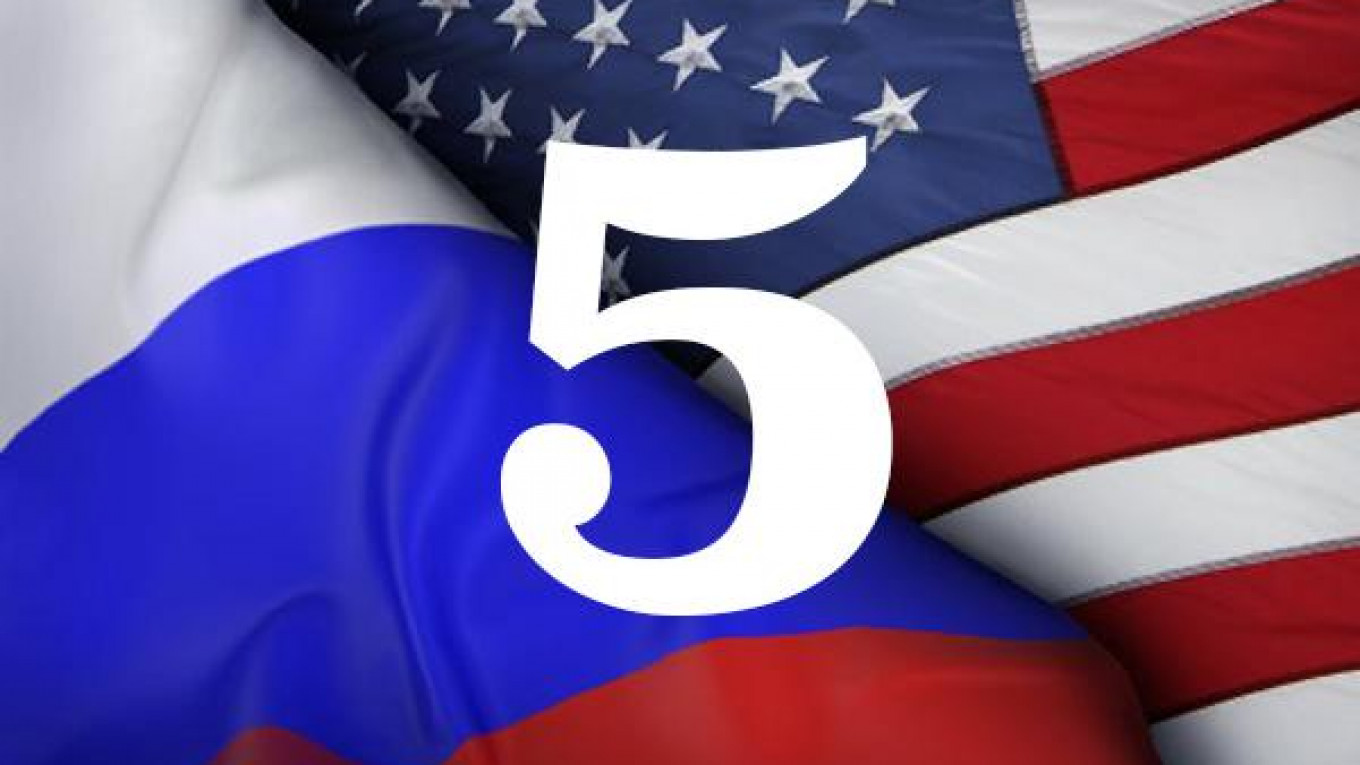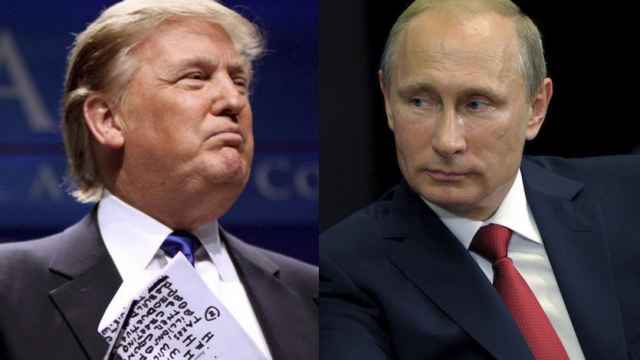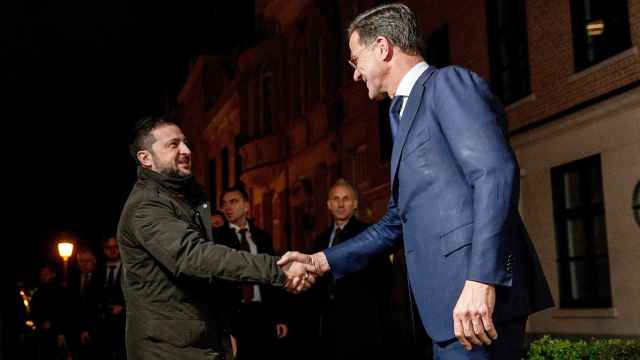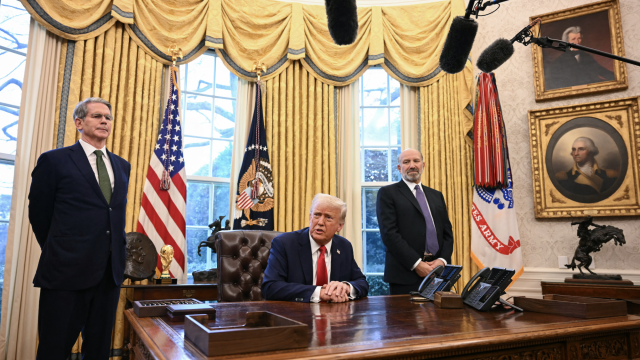On Friday, U.S. President Donald Trump and his Russian counterpart, Vladimir Putin, will hold their first face-to-face meeting.
Ahead of this widely anticipated encounter on the sidelines of the G20 summit in Hamburg, Germany, we asked three Russian experts to weigh in on the following questions:
— What are your top recommendations for Putin before his meeting with Trump?
— What is the easiest thing that Putin can do to improve bilateral relations between the two countries?
— What do you see as the most intractable bilateral issues?
1. Fyodor Lukyanov
*This is part two of a two-part series. Read: 5 Tips For President Trump here.
Editor of Russia in Global Affairs Chairman of the Presidium of the Council for Foreign and Defense Policy

First, I’d advise Vladimir Putin not to expect anything from this meeting. He should pay attention to Trump’s posturing and behavior and size him up. This is very important.
Also: Don’t react to what’s happening around this meeting independently of its content because this commotion is an instrument of internal political battles in Washington. Putin should keep this in mind.
I don’t think Putin can do anything to improve relations with the U.S. because the situation is highly unusual. On one hand, Russia has become a massive factor in the public debate and the U.S.’ internal power struggle. But in fact, Russia is not that important for the Trump administration in realizing its foreign policy goals (if it has any).
Trump’s priorities are primarily related to international trade and economic issues, and in this area Russia is not a major player. Putin can do one thing only: Try to establish strong personal contact with Trump. It’s not a given he’ll succeed.
Russia and the United States must get along because they are both nuclear powers. The nuclear issue keeps us bound to each other, but as far as other issues there is no coordination in policy and relations are even worse than during the Cold War. The United States is suffering through a very difficult internal transformation and until this process is complete, it will be a difficult and even pointless counterpart.
Russia for its part understands that the U.S. line is not clear and is in flux. Russia is also establishing its priorities and not just reacting to U.S. actions. We have long ago become unaccustomed to this. Always reacting to the Americans is something that dates to the late Soviet period and used to be our main course of action.
2. Pavel Demidov
Head of politics and communication department, Center for Strategic Research

First, as those prepping Putin have already done, it’s important for him to familiarize himself with Trump’s past meetings with other leaders, including the heads of Japan, China and European countries.
It’s clear that Trump is someone who loves to be praised and have people agree with him, and during negotiations, he simplifies complex issues as much as possible. Being aware of this seriously helps dealing with Trump, who has a positive attitude towards Putin (in contrast to many others). For Trump, personal relations are very important, and this can be used wisely.
I honestly don’t see any opportunity for Putin to score an easy victory. The best thing that he can do is to conduct the meeting in the calmest and most constructive way he can. Both countries have a well-established practice of trolling each other, and it is important to refrain from this and to speak in serious diplomatic language, and say: "There are a lot of problems to solve and we need to cooperate.’’ It won’t lead to quick results, but it will help to build trust for the future.
The most complicated problem is that we are enmeshed in accusations that Russia interfered in the American elections. For the U.S., this is quite a sensitive internal political issue, and in general, the issue of cyber-security is at the forefront.
Then, there is the whole complex of issues related to Ukraine, and this will hardly be discussed, considering both the U.S. political situation, the weakness of the U.S. president, and Russia’s domestic political situation — specifically the upcoming election period.
3. Dmitry Suslov
Program Director, Valdai International Discussion Club

I would advise Putin to make the following points very clear: First, Russia is not the United States’ enemy and it is not trying to undermine American interests around the world. It would be worth telling Trump that in person.
Secondly, stress Russia’s readiness to cooperate with U.S. interests. Donald Trump is a pragmatist, with a business-oriented approach to international relations, which is stripped of all ideology. He is open to a concrete dialogue about national interests. So such an approach would impress him.
It’s not in the interests of the U.S. to allow the strengthening of China or a direct military confrontation with Russia, or to weaken its relations with its allies — all of which will happen if the current escalation continues. We have many common interests in Europe, Asia and the Middle East.
Thirdly, it’s imperative to clearly establish spheres of responsibilities in Syria, not only for the prevention of armed conflicts, but to achieve a clear understanding of who should be liberating which territories of terrorists. It’s essential to move forwards and prevent a further worsening of relations.
Fourthly, Putin needs to stress with Trump the need to consider strategic stability. It is in the interests of both countries to prevent a collapse of the Intermediate-Range Nuclear Forces Treaty (INF), and to prolong the Strategic Arms Reduction Treaty (New Start.)
Finally, Putin should point out to Trump that solving the Ukrainian problem is not possible if Ukraine does not fulfill its part of the Minsk agreement. It is in the U.S. interest to put some pressure on Ukraine.
The main problem: Russia has become an instrument in domestic U.S. politics in order to weaken the presidential administration. That can only be solved by returning to the previous [political] establishment, but that means a further worsening of relations [between Russia and the U.S.].
The second problem that cannot be solved is Russia and the U.S.’ approach to the global order. The United States is still fighting for a leadership position in a unipolar world. Russia protests against this, and comes out in defense of a multipolar world.
The third, more narrow problem, is Iran. The United States will aim to weaken Iran, while Russia sees Iran as an important partner and ally. The fourth problem, which might be easier to solve, is Ukraine.
Russia is trying to get Ukraine to fulfill the Minsk agreement, and change the status quo to its advantage. The United States want to keep the status quo that emerged after the Maidan protests, and is not able to put the necessary pressure on Ukraine because of the domestic obstacles Donald Trump faces.
Even if Putin resigns, Russia will continue to be used by the U.S. elite to weaken Trump, so today it has become practically impossible to improve bilateral relations between the two countries.
At the same time, there are certain steps Russia could take to send a clear signal that it’s not an anti-American player, and present those steps as a certain symbolic victory for Trump.
For example, to commit to never violate the airspace of NATO countries or allow dangerous situations to emerge there, put more pressure on the Syrian regime and make completely clear the impermissibility of the use of chemical weapons or military force in this conflict. It could focus on the fight against Islamic State* instead of the opposition in Syria, and take up a harsher position towards North Korea.
That would make it easier for Trump to sell [the idea] of a constructive cooperation with Russia at home.
*Islamic State is a terrorist group banned in Russia.
A Message from The Moscow Times:
Dear readers,
We are facing unprecedented challenges. Russia's Prosecutor General's Office has designated The Moscow Times as an "undesirable" organization, criminalizing our work and putting our staff at risk of prosecution. This follows our earlier unjust labeling as a "foreign agent."
These actions are direct attempts to silence independent journalism in Russia. The authorities claim our work "discredits the decisions of the Russian leadership." We see things differently: we strive to provide accurate, unbiased reporting on Russia.
We, the journalists of The Moscow Times, refuse to be silenced. But to continue our work, we need your help.
Your support, no matter how small, makes a world of difference. If you can, please support us monthly starting from just $2. It's quick to set up, and every contribution makes a significant impact.
By supporting The Moscow Times, you're defending open, independent journalism in the face of repression. Thank you for standing with us.
Remind me later.






